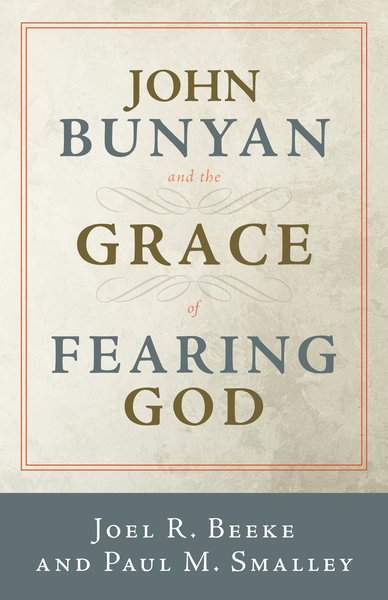
Joel R. Beeke and Paul M. Smalley
Reviewed by: Robert J. McKelvey
John Bunyan and the Grace of Fearing God, by Joel R. Beeke and Paul M. Smalley. P&R, 2016. Paperback, 160 pages, $11.50. Reviewed by OP minister Robert J. McKelvey.
We hear little in the church today on the discomforting doctrine of the fear of God. In a timely and relevant manner, this historical-devotional work by Joel Beeke and Paul Smalley highlights John Bunyan’s focus on this “weighty and great grace” (131) in A Treatise of the Fear of God (1679).
The authors emphasize the sweetness of fearing God from Bunyan’s “sound advice on how to grow in the fear of God.” You can’t be a Christian and not fear God, the authors warn, but we must “beware of slavish fear, the fear of rejection by God, for it is inappropriate and unhelpful for the justified child of God.” In the end, his covenant promises in Christ will teach each believer “how to live as a reverent son or daughter of the living God” (137).
The book begins with a thirty-page biographical sketch of Bunyan’s life in general, but it does not pertain directly to his treatise on fearing God. The authors should have concentrated more contextually on the fear of God in connection with Bunyan’s life and times. Before this focused treatment, they could have directed readers to a standard and more general Bunyan biography or even Beeke’s own sketch (along with Randall Pederson) in Meet the Puritans (Reformation Heritage, 2006).
The authors never mention the anti-Catholic paranoia arising out of the alleged Popish Plot in England, stirred up in 1678, which provided a context of fear behind Bunyan’s Treatise. Richard Greaves, in his introduction to the Oxford edition of that work (The Miscellaneous Works of John Bunyan, vol. 9, 1981), discusses that supposed plotting at length. He suggests that, at a time when people lived in fear, Bunyan directed them to live in the fear of God and to do so in a proper manner. Unfortunately, while the authors cite other volumes of the Oxford edition, they do not mention this crucial one.
The authors also favorably explain Bunyan’s treatment of “the spirit of bondage” in Romans 8:15. While we should applaud his emphasis on the fear of hell driving us to Christ, we must question Bunyan’s exegesis here. He calls this spirit of bondage “godly” and part of a “first conversion” or “awakening.” Paul actually treats this spirit as something slavish and experienced in the unregenerate state before one receives “the spirit of adoption.”
Please don’t let the issues I raise keep you from this otherwise excellent book. The church needs to hear more, not less, on the fear of God. Furthermore, we need to view this fear as Bunyan, Beeke, and Smalley do: as a blessed grace intimately related to our faith in and love for Christ.
April 27, 2025
The Devoted Mind: Seeking God’s Face in a World of Distraction
April 20, 2025
April 13, 2025
Suffering: God’s Purpose in Our Pain
April 06, 2025
Sunday Matters: 52 Devotionals to Prepare Your Heart for Church
March 30, 2025
On the Trail with a Missionary
March 23, 2025
Midnight Mercies: Walking with God Through Depression in Motherhood
March 16, 2025
© 2025 The Orthodox Presbyterian Church